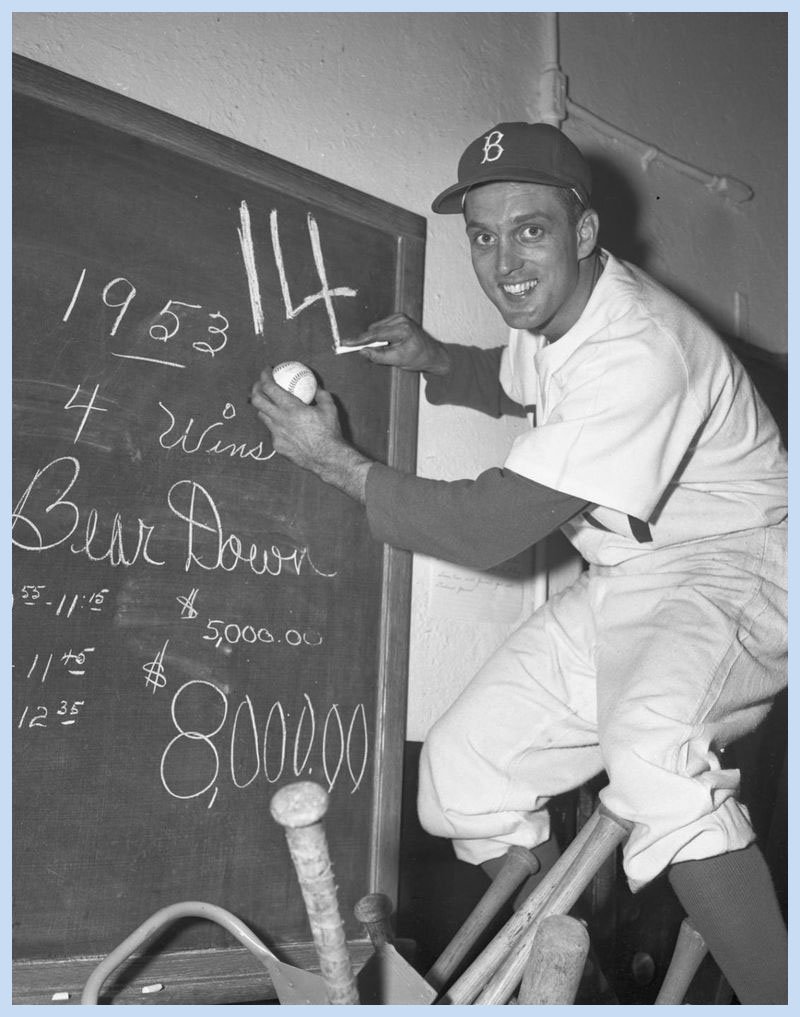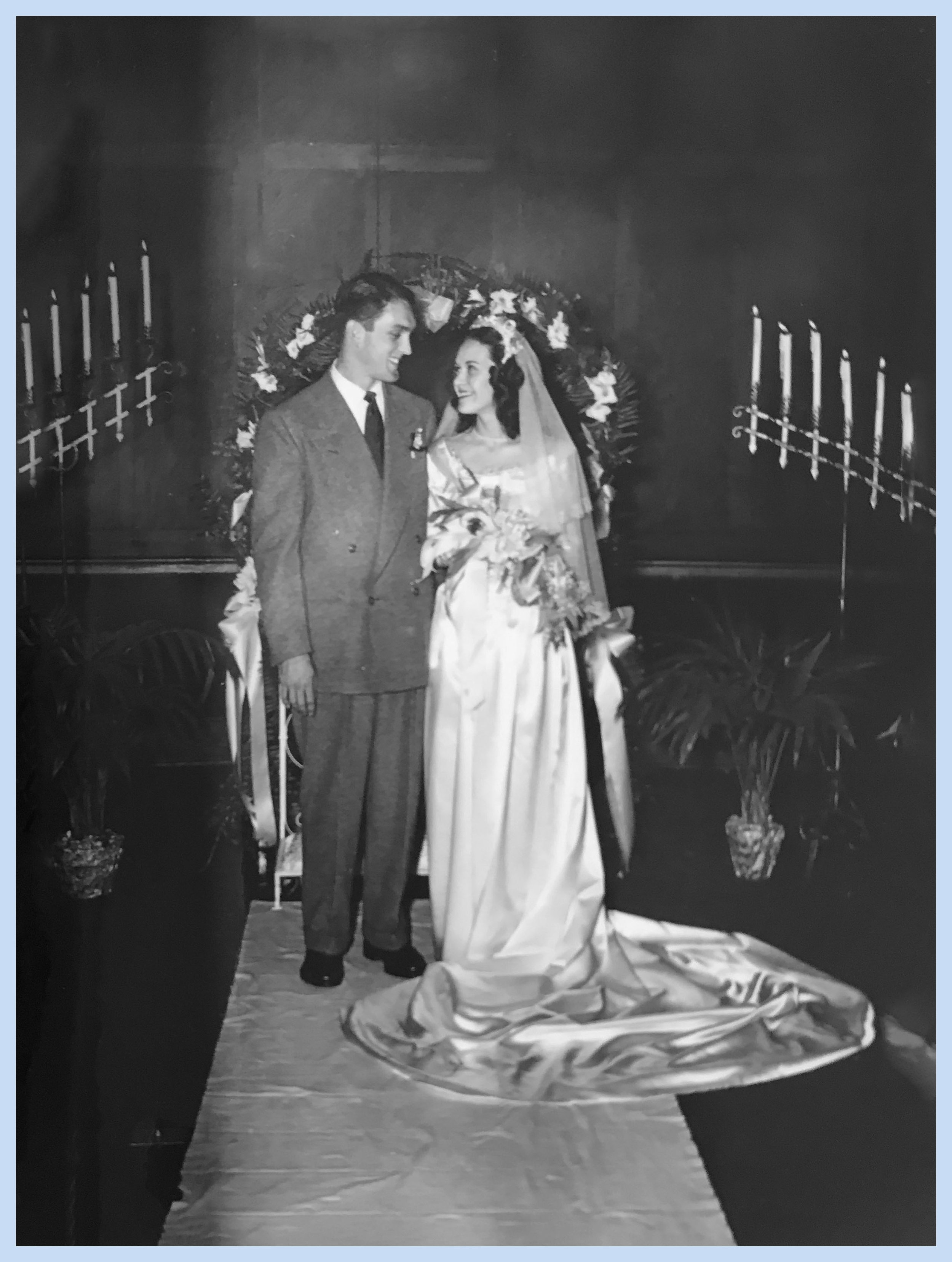There are awards—and then there are rewards. Plaques and trophies are given freely these days for all kinds or reasons. Sometimes they are given for true excellence in one field or another—sports, journalism, music, entertainment, and scientific discovery. Sometimes they are given just to encourage a kid along in 4-H, spelling, academic achievement, or a school sport.
But last week an award was given for excellent living. Oh, it was a sports award, too. But Carl Erskine was given the National Baseball Hall of Fame Buck O’Neil Lifetime Achievement Award for “his extraordinary efforts to enhance baseball’s positive impact on society.” This was only the sixth time this award has been given, but in our opinion it was long overdue for Carl.
Now 96, Carl wasn’t up to traveling to receive this award in person. But maybe it says even more that his and Betty’s family was there to receive it. Their son Gary represented them in receiving the award, saying, “It is the thrill of a lifetime to accept this award for my dad.”
Who more than a man’s family is qualified to give testimony to the authenticity of a person who spent his life not only “broadening the game’s appeal and whose character, integrity, and dignity epitomizes the intension of the award but also exemplifies those qualities in the many years off the field.”
Ted Green, documentarian for the Erskine film The Best We’ve Got*, described Erskine as “the 96-year-old guy with the 12-year-old eyes,” eyes that, I might add, dance whenever he’s telling baseball stories or playing his harmonica. It was Ted who videotaped (in Carl’s and Betty’s home) Carl’s characteristically humble response to receiving the award: “For just a skinny kid from Anderson, Indiana, it was quite a journey to be on the big stage with the superstars of the day.... They were all Hall of Famers. I don’t know where I fit in there, but I was glad to be there.”
A few weeks before the award, Bill, Woody Wright, and Buddy Greene went over to see Carl and Betty. Buddy went in the front door playing “Basin Street Blues” on his harmonica; without a word Carl answered by picking up the harmonica he keeps on the table by his chair, and joining Buddy in the tune. Greeting enough! And that harmonica has opened many-a-door for Carl to break down barriers and forge friendships over now six decades since he left baseball.
Famous for being one of the Boys of Summer, Erskine played with legends like Duke Snider, Jackie Robinson, Peewee Reese, and Roy Campanella as a stand out pitcher for the Brooklyn and LA Dodgers, racking up 122 wins and two World Series championships. He threw 14 shutouts and played in 11 games during five World Series. His baseball accomplishments go on and on.
But for Bill and me and the people of Madison County, Indiana, the real honors go to a long life well-lived. After baseball Carl and Betty returned to their home town of Anderson, where he coached at Anderson College for twelve years, winning four conference championships. And that was just the beginning of “wins” nobody knew to applaud at the time. Faithful to their church, charter members and lifelong supporters of Fellowship of Christian Athletes, contributing to dozens of projects and endeavors to enrich their wide community, Carl and Betty consistently began to help give sinew to the frame of their home town and state by encouraging, supporting, and always “showing up for work” in daily ways.
For Bill and me perhaps the greatest story of all is the love affair between Carl and Betty. Just as Carl’s baseball career was beginning to draw attention, he married his high school sweetheart. For her, “I do” meant being a consistent, steady force to a man, who would move a lot in the baseball life, and be there to hold things together when he was away from wherever home was over the years.
Their son Gary put it this way: “During Dad’s playing days, we always followed him. We moved to Vero Beach during spring training and on to Brooklyn or Los Angeles during the season and back to Anderson in the off season.”
During that time, they had two more little boys, and Betty made a home for them wherever home was. A third child, their little Susan, came along just when Carl’s career was at its peak in 1955. It was when Susan was four that Carl retired from baseball, and they had their fourth baby Jimmy, who had Downs syndrome. At a time when it was assumed that Downs children would be institutionalized, Carl and Betty said, “No, he’s our son, and he will go home with us.” From that time on, the Erskines committed not only to making Jimmy a part of their family, but a part of the community and the world. They started the Indiana chapter of Special Olympics and became lifelong advocates for people, especially children, with disabilities by helping to create the Hopewell Center in Indiana. Because of their making our area more aware, our community cheered Jimmy on in the Special Olympics and became proud to greet him all the years he worked at Appleby’s. Everyone knew Jimmy!
The beautiful love affair between Carl and Betty was an example to Bill and me of what real love and romance is all about. A few weeks ago, we took our dog Windsor and went over to visit Carl and Betty. Bill wanted to show them the video cuts the Vocal Band had filmed singing to their wives the collection of love songs they had recorded. Carl and Betty watched and at times sang along. When they got to the song “You Are So Beautiful to Me”, Carl looked over at Bill and me and pointed to Betty and smiled. That said it all after 76 years of marriage. She said he thought she was still beautiful because he was looking at her through grandpa eyes. But all of us know they are both beautiful in the eyes of everyone who knows them. And this beauty is--like the two of them—the real deal!
*The Best We’ve Got” Documentary can be viewed on many platforms








